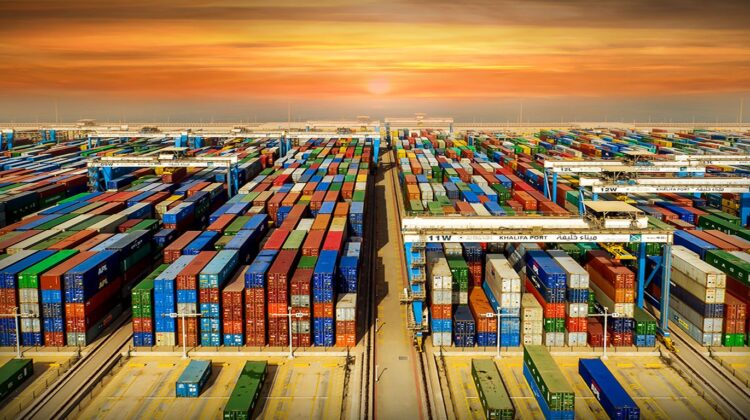
ADT launches Microsoft pilot study to fully automate Container Terminal by mid-2023
DUBAI : Abu Dhabi Terminal ( ADT), which manages and operates the Khalifa Port Container Terminal (KPCT), has recently partnered with Microsoft Consultancy Services to deploy Artificial Intelligence (AI) at the facility.
Part of the collaboration involves the exploration of autonomous shuttle capabilities across ADT with the use of Microsoft’s AI Azure Cloud services.
Arturo Garcia, Chief Automation Officer at ADT, told PTI that whilst the container yard itself is 100% automated, the transfer of containers from the Quay Cranes to the automated yard is still performed via manned vehicles.
“Our objective is to change this process to fully autonomous vehicles where all end-to-end container handling process is managed without any human intervention,” Garcia explained.
“There would be some adjustments in vehicle-to-infrastructure network capabilities to accommodate this critical use case, especially to build flawless safety protocols.
“We know that this R&D partnership with Microsoft will be a long journey, and we are expecting to see results in roughly two years,” he added.
The company has made numerous digital and structural investments to support the recent completion of its Expansion Project.
With this expansion, the terminal now has a yearly capacity of 5.5 million TEU.
“Full automation of terminal operations has always been part of ADT’s strategy and vision and we are true believers in the benefits of automation,” Garcia stated.
He continued, “Due to the COVID-19 pandemic, investment in automation has become an even higher priority at ADT and accelerated our automation plans”.
“We are a semi-automated terminal – we still have shuttle operators. When COVID-19 hit us in March and April last year, we never stopped operations,” Garcia said.
“Prior to COVID, we had implemented a Business Continuity Plan (BCP) which not only focused on automation, but also on remote work infrastructure. There was a big risk that operations would be impacted, but we managed the situation properly and other than operators/technicians, we had 100% of our staff working from home by early March 2020 with no impact on our productivity”.
Garcia went on to note, “The COVID-19 situation highlighted one of the greatest risk to ports worldwide-the human factor. Many businesses were impacted by sick employees and increased automation helps mitigate that risk.
“More now than ever, the port industry needs to learn from the COVID situation and invest in these innovative and disruptive technologies.”
Source : Port Technology

